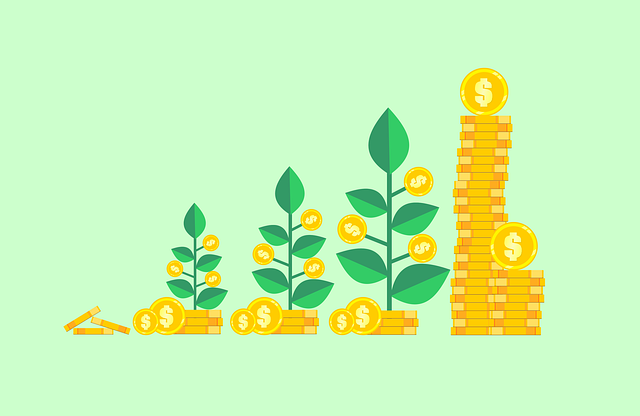Navigating a Downturn Economy: How to Balance a Maintenance Service Mix to Sustain and Grow Your Landscape Company

In business, periods of economic growth are often followed by economic recession or slowdowns. For landscape companies, understanding and adapting to these shifts is not just about survival but about setting the stage for consistent growth, even in challenging times.
As business leaders, we must critically examine how to pivot our strategies, particularly focusing on our service offerings. This piece will explore how to balance a maintenance service mix to sustain and grow your landscape company when navigating an economic downturn.
Understanding Economic Factors
The World Economic Forum consistently emphasizes the importance of understanding economic factors to achieve sustainable development and withstand shocks. We’ve seen how the global financial crisis of the past two decades impacted economies worldwide, with developing countries often among the hardest hit. Today, factors such as GDP growth, interest rates, and fluctuating consumer spending are all crucial metrics to consider.
The World Bank provides valuable insights into these economic considerations, highlighting how even events like extreme weather events can have a direct impact on economic benefits. For instance, a recent report indicated that climate-related disasters cost the global economy considerably, potentially reaching $2.7 trillion annually by 2030. Developing nations, in particular, face unique challenges with limited financial resources and infrastructure, making them more vulnerable to these shifts.
Furthermore, tight labor markets and supply chain disruptions continue to influence input costs and the availability of more workers. The supply chain resilience is paramount – disruptions can severely impact your ability to deliver services efficiently. These are not merely abstract concepts – they directly affect your landscape business model and overall profitability.
Global Trends and Local Impact: The Landscape Industry’s Role
Global collaboration is often highlighted by organizations like the United Nations as essential for addressing major social challenges and economic challenges, including income inequality and greenhouse gas emissions. These global trends, such as the increasing focus on climate change and its effects like global warming, directly influence public and private sector priorities and, by extension, our industry.
The bond markets and various financial institutions also reflect the broader economic climate, indicating investor confidence and the availability of capital. For the landscape industry, this means adapting to shifts in consumer spending habits. While discretionary spending may decrease, there is often an increased demand for essential services and solutions that offer long-term value.
This is where the landscape industry truly shines. Promoting green spaces is a crucial aspect of sustainable development, as it contributes to biological diversity, enhances public health, and improves the overall well-being of urban areas. These are economic benefits that are becoming increasingly recognized, providing an avenue for your business to contribute to real progress while also securing its future.
Optimizing Your Maintenance Service Mix
When an economic recession hits, consumers and businesses alike tend to tighten their belts. The riskiest strategy is to rely solely on high-margin, one-off projects. Instead, the focus should shift to building a robust foundation of recurring revenue. This is where balancing a maintenance service mix becomes paramount.
- Prioritize Recurring Revenue: Maintenance contracts provide predictability, stability, and higher client retention rates. Services such as lawn care, irrigation checks, seasonal clean-ups, and snow removal (depending on your region) can provide a steady income stream. This acts as a buffer against unpredictable project work, enabling consistent growth and development.
- Analyze Your Portfolio for Resilience: Identify which services are most likely to be retained by clients during a downturn. Often, essential upkeep (e.g., ensuring property value, meeting HOA requirements) is prioritized over purely aesthetic enhancements. Assess your current business model to see where you can offer a wider range of these resilient services.
- Diversify Within Maintenance: Offer tiered service packages (basic, standard, premium) to cater to various budgets. Consider niche maintenance services that address specific client needs.
- Leverage Existing Client Relationships: It’s more cost-effective to retain and upsell existing clients than to acquire new ones. For landscaping companies, using landscaping CRM software like Arborgold streamlines quoting, scheduling, and service tracking, helping you identify upsell opportunities efficiently.
This type of diversified landscaping service mix helps recession-proof your lawn care business while improving overall landscape business profitability during uncertain times.
Beyond Maintenance: Strategic Growth in a Downturn
While maintenance provides stability, you can still pursue growth opportunities.
- Invest in Sustainable Development: This isn’t just about environmental responsibility – it’s a smart business strategy. Promoting drought-tolerant landscapes, permeable paving, or native plant installations can appeal to clients seeking long-term savings and aligning with sustainability goals. These projects often have strong economic benefits and are increasingly sought after by public and private organizations.
- Focus on Resilient Niche Markets: Consider commercial properties with long-term contracts, healthcare facilities, or well-funded HOAs that may have more stable budgets.
- Operational Efficiencies and Cost Management: In a downturn, every dollar counts. Automate where possible, optimize routing, and negotiate better deals with suppliers. For green industry professionals, robust landscaping business management software, like Arborgold, plays a pivotal role in maximizing profitability by integrating quoting, scheduling, invoicing, and client communications—all essential for landscaping business growth during a downturn.
- Strategic Marketing and Communication: Shift your messaging from luxury to value and necessity. Emphasize how your services protect property value, reduce future costs, and enhance the well being of their environment.
- Consumer Financing: Affordability is a significant concern for consumers during a recession. Offering flexible payment options can significantly increase customer satisfaction and enable clients to invest in necessary services they might otherwise defer. To explore how consumer financing can benefit your business, download our comprehensive guide on Consumer Financing. Finding ways to differentiate your business and increase customer satisfaction is crucial. As a business strategy, many service companies are offering consumer financing options with flexible payment plans for their customers.
Sustaining and Stimulating Economic Growth for the Long-Term
To truly thrive, your landscape company needs a long-term vision that anticipates future challenges and opportunities.
- Build Strong Client Relationships: Exceptional customer service becomes a key differentiator. Proactive communication, addressing concerns promptly, and demonstrating genuine care will build loyalty. Effective customer relationship management (CRM) features within specialized software are instrumental in nurturing these vital connections and ensuring no lead or client concern falls through the cracks.
- Invest in Your Labor Force: Even in tight labor markets, retaining skilled workers is critical. Training for versatility and efficiency empowers your team and ensures high-quality service delivery, reducing future risk.
- The Landscape Industry’s Wider Economic Role: Recognize that your business contributes to broader economic growth. By reducing greenhouse gas emissions through sustainable practices, managing stormwater, and creating vibrant green spaces, you’re an essential part of community development and environmental health. Public and private organizations are increasingly seeking partners who align with these broader objectives.
Thriving, Not Just Surviving
Navigating a downturn economy demands a strategic and proactive approach. By focusing on balancing a maintenance service mix for stable revenue, embracing sustainable development, and optimizing your operations, your landscape company can not only withstand shocks but position itself for consistent growth.
It’s about adapting your business model, understanding economic factors, and consistently demonstrating value to your clients. With thoughtful planning, diversified maintenance services, and the right tools, your business can thrive even during economic downturns while building long-term landscaping business growth.
Frequently Asked Questions
How can landscaping companies grow during a recession?
By diversifying maintenance services, securing long-term contracts, optimizing costs, and using specialized business software to manage scheduling, quoting, and CRM, landscaping businesses can continue growing even during economic uncertainty.
Why is balancing the landscaping service mix important?
A well-balanced service mix helps maintain steady revenue through recurring maintenance while still offering profitable projects, making the business more resilient during economic downturns.
What landscaping services are most recession-proof?
Recurring maintenance services such as lawn care, irrigation checks, seasonal cleanups, snow removal, and plant health care are often prioritized by clients during economic downturns. These essential services protect property value and generate steady income for landscaping businesses.
How does service diversification help during economic downturns?
Diversifying landscaping services allows companies to offer multiple solutions that fit different client budgets. Offering tiered maintenance packages or specialty services like sustainable landscaping increases your ability to retain clients and capture new opportunities even when budgets are tighter.
Why is client retention so important during a recession?
Acquiring new clients is typically more expensive than retaining existing ones. Focusing on exceptional customer service, transparent communication, and offering flexible payment options helps strengthen client relationships and stabilize revenue during uncertain times.
Share this resource









